Justice Scalia: Cameras In The Supreme Court Would “Miseducate” People
Justice Scalia explains why the Supreme Court resists the idea of letting cameras into the court. He makes a persuasive case.
In another excerpt from his upcoming interview with C-Span’s Brian Lamb, Justice Antonin Scalia gives some insight into the reasons why he and his fellow Justices continue to resist the idea of cameras in the courtroom:
(CBS News) Both Democrats and Republicans have for years urged the Supreme Court to allow cameras into the high court, but Supreme Court Justice Antonin Scalia said that video footage would only serve to “miseducate the American people.”
In an interview with C-SPAN that will air Sunday, Scalia said that watching remarks from the Supreme Court taken out of context would be more damaging than simply reading the remarks out of context in a newspaper.
“Somehow when you see it live, an excerpt pulled out of an entire, when you see it live, it has a much greater impact,” Scalia told C-SPAN founder Brian Lamb. “No, I am sure it will miseducate the American people, not educate.”
The conservative justice said that if the American people watched the court proceedings “gavel to gavel” they would understand “we’re not usually contemplating our navel, ‘should there be a right to this or that, should there be a right to abortion’… That’s not usually what we’re doing. We’re usually dealing with the Internal Revenue Code.”
However, Scalia said that people wouldn’t watch proceedings in their entirety.
“Your outfit would carry it all, to be sure,” Scalia said to the C-SPAN founder, “but what most of the American people would see would be 30-second, 15-second takeouts from our argument, and those takeouts would not be characteristic of what we do. They would be uncharacteristic.”
This issue came up most recently, of course, when Lamb himself wrote the Court asking them to reconsider their policy and allow C-Span to televise the hearings on the Affordable Care Act that had been scheduled for March. That request was, unsurprisingly, denied as all previous such requests have been denied. Instead, in recognition of the extraordinary public interest in the case, they did make the transcripts and recordings from each days hearings available on an expedited basis. On each of those days, the news coverage of the hearings did include excerpts from the audio recordings of the hearings, although only very limited excerpts.
While I did say when the C-Span petition was first made that I thought it was a good idea, I do have to say that I understand Justice Scalia’s position entirely. In our media culture, it’s likely that only limited excerpts of an hour long (or more in the case of the PPACA hearings) hearing would end up being televised and, in the process, it would inevitably be analyzed, criticized, interpreted, and distorted for partisan purposes. The odds that the general public would get an honest assessment of either what the issues before the Court in a given case actually were, or what happened in Court are pretty low, especially when being evaluated by pundits with an obvious political axe to grind. I’d also imagine that the Justices are concerned that video of the proceedings would end up being used in political commercials, which could only serve to diminish the reputation of the Court. By banning cameras in the court, the Justices are able to control the extent to which they are injected into the political fights that the nation is engaged in, and they can avoid the possibility of their words being used to advance political causes that they either don’t agree with or don’t want to be associated with.
Though not mentioned by Scalia, one of the biggest questions that lawyers and judges have dealt with ever since cameras first started showing up in courtrooms was the extent to which the presence of cameras in the court would influence what goes on inside. Would lawyers and judges change the way they act for the benefit of the camera? We can point to at least several high-profile cases where this certainly seems to have been the case. The most famous example, of course, being the O.J. Simpson trial where the defense was clearly playing for the cameras as well as the jury, and where the Judge seemed more concerned with his personal image than keeping control of his courtroom. For the most part, though, the courts that have allowed cameras seem to have done a fairly good job of limiting the extent to which their presence influences the proceedings. Moreover, this danger seems far less apparent at the appellate court level where the cases are concerned with purely legal arguments for the most part, and where the lawyers are far more experienced than trial attorneys and where judges involved are appointed rather than elected and thus not as concerned with their public image. Indeed, several State Supreme Courts and a few U.S. Courts of Appeals have allowed cameras and it seems to have no impact at all. The most notable example of this was the 9th Circuit’s televising of the appellate hearings in the Proposition 8 case.
So are Scalia and the other Justices right about this, or should they be allowing cameras in the Courtroom?
Well, the first point to make about that is that the vast majority of cases that the Court hears are going to be of interest to a very limited number of people. You’re not going to get a large audience for a Patent case, for example, or for something dealing with some odd provision of ERISA. People are going to be interested in the high profile cases, just like they are now, and those are the ones where the video from the hearing would be picked about and excerpted in the manner that Scalia fears. So, for that reason alone, I’m not sure there’s any value in putting cameras in the court if most of the time most people aren’t going to be paying much attention to it. Secondly, putting the Supreme Court on television risks it getting sucked into the same media culture that is already destroying so many other parts of our body politic. Do we really want that to happen to our Judicial System as well? Yes, it would be cool if we could watch the Supreme Court on television, but I’m not at all sure that it’s necessary and I’m perfectly fine if things stay exactly the way they are.
Here’s the video where Scalia discusses this issue:


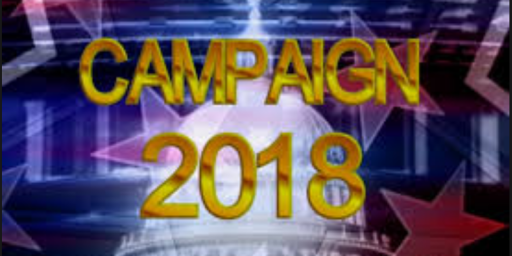
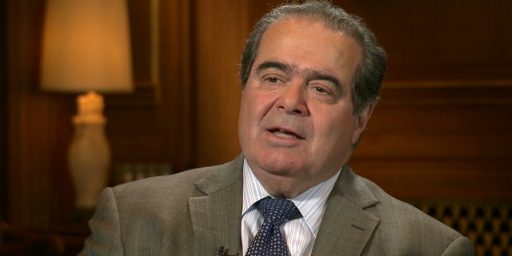
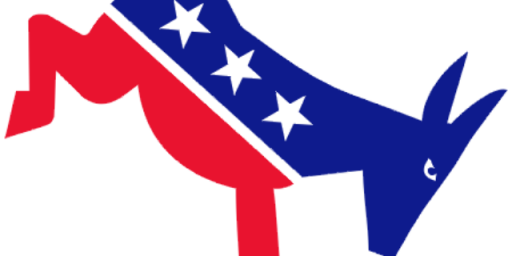
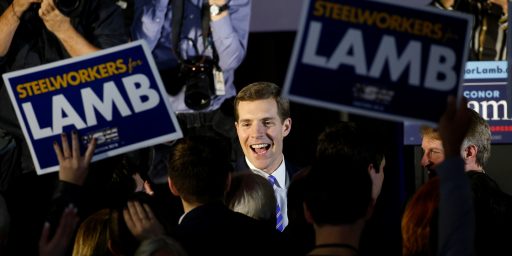
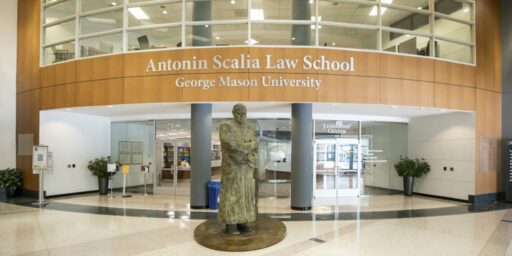
copy edit needed after “notable example of this was ”
I’d like to see it televised. There’s no reason for the mystery at this point other than vanity.
In addition to the points that Scalia, and you, Doug, make, as I understand it, most of the action is behind the scenes, and the actual court time is really a kabuki dance between the Justices communicating among themselves through their questions.
I can’t imagine that could be correctly interpreted by the public.
I tend to agree with Scalia on this.
The very fact that of televised observation would inevitably affect the proceedings and deliberations of the Court. People alter their behavior in many ways, often subtle, when they know that they are being observed. I’d prefer to let the Court operate as it has been for decades.
The day has come when I agree with Justice Scalia.
The only reason some insist on having cameras is to make a better show of it since the transcripts are available and hence all relevant information is available. (There is no secrecy here, rudderpedal)
Note that the Supreme Court is by no means isolated in this position and numerous district courts adopt the same position in many cases.
There is no doubt in my mind that introducing cameras in courts is disastrous as it encourages “theatrics” from both defense attorneys and prosecutors alike and sometimes from judges themselves.
Remember the OJ trial fiasco? Or closer to us the DSK masquerade?
In both cases, the absence of video footage would have made the sensationalist TV coverage more difficult and hence justice would have been better served.
I agree with Drew.
Scalia in particular engages in a certain style of Socratic questioning, asking whether the point being urged would also apply to a silly or disturbing circumstance, in order test the principles. He would even be more fodder for jokes from the political-entertainment shows, and probably too many would be left with the impression that the questions reflect the law.
Should we also block televised congressional hearings because they might be taken out of context?
Should we also block presidential debates because they might be taken out of context?
The Presidency and Congress are the political branches of government, the courts are not
@Doug Mataconis:
That may be the ideal, but in practice, that’s demonstrably untrue.
I don’t see how suppressing images from a proceeding in open court much less the most important court in the land is justifiable in the 21st century. The camera presence can be discreet and the hearings can proceed as usual for those able to get tickets except that the rest of the country can also attend. I expect the Justices and counsel will comport themselves and the sight of 9 public servants performing their regular duties will not bring about the downfall of the Republic.
What we need is a camera in the conference room. Then everyone would see who is really making the decisions and calling the shots.
@Doug Mataconis:
Any branch charged with interpreting the law is innately political, otherwise it wouldn’t exist.
@PD Shaw
I think he just doesn’t want to deal with stuff that his predecessors didn’t have to.
@Thomas’s Paine:
“I think he just doesn’t want to deal with stuff that his predecessors didn’t have to.”
FYI television has been around for quite a while, and his predecessors shared his opinion.
Justice Scalia assumes we are too stupid to figure out edited content can be biased.
Let C-SPAN report… we can decide…
@rudderpedals:
Yes, it´s justifiable. Here, in Brazil, sessions of the Supreme Court are broadcast live. People simply count the votes like it´s a soccer game and they demand a result regardless of the law. There is not only the problem of politicization of the Court, but there is also the problem of the inflated egos among the justices.
@André Kenji de Sousa: I sadly know next to nothing about Brazilian law. Are you in a civil law jurisdiction?
US jurisprudence consistently urges the cure for miscommunications is more communications. It’s bad policy and it looks terrible too that the court excepts itself from the public eye.
@Doug Mataconis: Bullshit — the courts are political as hell — please see Bush v. Gore (One time use only) for best example
The stuff does get posted. If you wait long enough you will get the transcripts and the recordings, which are now being made available on line so you can get them simultaneously. (Look into the OYEZ project).
I’m on the side of Scalia. Putting videos out there would just inspire the idiot population known as journalists/pundits to slice and dice as they pleased, just as Romney is doing at present with anything Obama says.
@rudderpedals:
I´m not a lawyer and Brazilian law is very different from American Law because English Law and Roman Law are very different things. But the problem is precisely that: the fact that the sessions are televised live helped to transform the court in a very political institution.
Besides that, “communications” here is a very ample concept.
@André Kenji de Sousa: The court and almost every commentor agree with your position. It’s a noble position but the court up here is so thoroughly politicized that I think the ship has already sailed and withholding images may help but only at the margins as far as decorum is concerned.
@rudderpedals: Believe me, in Brazil(Where a Chief Justice became a Defense Minister) is much worse. There is also the bizarre claims that someone hacked the phones of the Justices, meaning that either someone hacked the phones or that a Justice was lying for political gains.
You can say anything about Scalia, but he has pretty personal ties with Kagan and Ginsburg. Besides that, one can argue that C-Span has a detrimental effect on the American Politics. People like Antony Wiener and Alan Grayson do all kinds of bizarre speeches to get money from donors, for instance. There is also the problem of theatrics when people like CEOs of companies are subpoenaed.